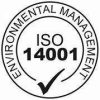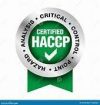FSSAI Third-Party Audit Services in India – Strengthening Food Safety and Compliance
ISO Certification

ISO 9001

ISO 22000

ISO 50001

ISO 22000

ISO 14001

ISO 45001

GMP Certification

HACCP Certification

HALAL Certification

Organic Certification

CE Marking

FSSAI 3rd Party Audits

To strengthen the food safety surveillance system, FSSAI has envisaged audits of Food Business Operators through Private Auditing Agencies. In order to cultivate and foster the growth of compliance culture, FSSAI is enabling compliance through private recognised Auditing Agencies. Food Safety and Standards (Food Safety Auditing) Regulations, 2018 have been notified on 28th August 2018 for the same.
What Are FSSAI Third-Party Audit Services?
FSSAI third-party audit services in India are objective tests carried out by FSSAI-impaneled audit agencies to gauge the food safety and hygiene standards being followed by Food Business Operators (FBOs). These agencies are authorized to work under the Food Safety and Standards (Food Safety Auditing) Regulations, 2018, which were issued on August 28, 2018.
The primary purpose of such audits is to formulate a culture of compliance within the Indian food industry. A sufficient third-party audit decreases the rate of visits by central or state organizations, with the exception of random sampling and testing.
FSSAI Third-Party Auditing Agencies in India
There are some FSSAI third-party audit agencies operating in India, which have been empanelled by the authority for performing food safety audits. Such agencies are empowered to perform compliance audits on different sectors of foods like manufacturing, processing, storage, distribution, and catering.
Some of the certifications provided by such agencies are:
- ISO Certification: Affirms a company’s compliance with international quality standards.
- ISO 9001: Specializes in quality management systems.
- ISO 22000: Especially for food safety management systems.
- ISO 50001: Assists with energy efficiency improvement.
- ISO 45001: Concentrates on occupational health and safety.
- GMP Certification: This means good manufacturing practices in food manufacturing.
- HACCP Certification: A system of hazard analysis to determine and control food safety hazards.
- HALAL Certification: Ensures that food is prepared according to Islamic principles.
- Organic Certification: For producers using organic farming practices.
- CE Marking: Guarantees conformity to EU health, safety, and environmental regulations.
These certifications not only enhance the integrity of food companies but also ensure that they are compliant with international food safety protocols.
FSSAI Third-Party Audit Checklist
A critical part of the audit process is the FSSAI third-party audit checklist, which assists auditing agencies and food companies with different compliance areas. The checklist often contains:
- Cleanliness and hygiene standards
- Staff personal hygiene
- Storage and transport practices
- Pest control processes
- Food handling and processing practices
- Documentation and record-keeping
- Labeling and packaging procedures
- Training of staff on food safety
Adherence to this checklist guarantees that food businesses conform to FSSAI regulations and are able to pass third-party audits with confidence.
FSSAI Third-Party Audit Frequency
The frequency of the FSSAI third-party audit is determined by the food business’s risk classification. The FBOs are classified as high-risk, medium-risk, or low-risk depending on the nature of operations and the type of food being handled.
- High-risk enterprises (such as dairy and meat processing) could be audited every six months.
- Medium-risk enterprises would be audited every year.
- Low-risk enterprises can be audited every two years.
The intention is to allow continuous improvement in food safety behavior while minimizing unnecessary regulatory checks on enterprises with consistent compliance.
Is FSSAI Third-Party Audit Mandatory?
Food business operators are often wondering, Is FSSAI third-party audit mandatory?
It is both yes and no.
Although the FSSAI third-party audit is not compulsory for all food businesses, it is compulsory for certain types, particularly the ones falling under the category of high-risk. Furthermore, third-party certification strengthens the credibility of the business as well as prevents the business from being regularly inspected by the authorities.
Voluntary audits are strongly suggested for FBOs seeking to gain the confidence of the consumers and remain ahead in the market competition.
FSSAI Audit Process for Food Businesses
The FSSAI audit process for food businesses is transparent, objective, and improvement-oriented. Here’s the process:
- Application: FBO makes an application for a third-party audit with an impaneled agency.
- Scheduling: The agency arranges the audit visit.
- Inspection: An in-depth audit is done following FSSAI guidelines and checklists.
- Reporting: The auditor creates a detailed report with strengths and non-conformities.
- Corrective Actions: Non-compliance areas should be addressed by the FBO within a stipulated time frame.
- Certification: If all is well, the agency issues a certificate of audit, which could minimize future government inspections.
This is not only good for food safety but also for consumer confidence and corporate reputation.
Advantage of FSSAI Third-Party Audit Services
- Encourages self-regulation and internal control
- Reduces frequency of government inspections
- Improves domestic and global credibility
- Facilitates early detection of potential risks
- Enhances customer confidence and brand reputation
By implementing FSSAI third-party audit services in India, food enterprises can establish a safer environment and achieve a competitive advantage.
We at thefairlabs.com help you coordinate FSSAI 3rd party audits right from the shortlisting the agency till successful completion of the audit.
